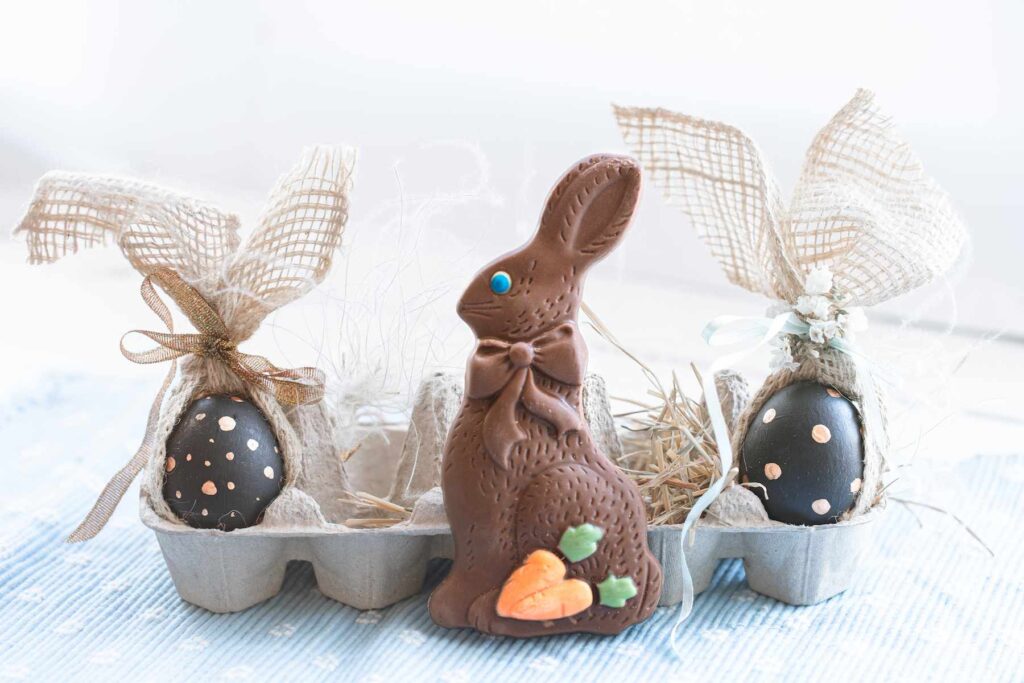Easter is one of the most important Christian holidays. In Russia and other Eastern European countries, Orthodox Easter is celebrated. It's a holiday rich in history and traditions — let’s explore them below.
When is Easter in 2025?
The date of Easter changes every year because it’s based on the lunar calendar. In 2025, both Orthodox and Catholic Easter fall on the same day — April 20. There is also Jewish Passover (Pesach), celebrated in remembrance of the Exodus from Egypt, which begins on April 12 this year.
When is Easter in the U.S.? In most U.S. states and in Canada, Catholic Easter is celebrated, as the majority of the population is Catholic or Protestant. However, in Russian-speaking communities, especially in cities like New York, Toronto, or Chicago, Orthodox traditions are passed down from generation to generation.

History of Orthodox Easter
Orthodox Christians celebrate the Resurrection of Jesus Christ on the third day after his crucifixion. Easter became an official holiday in the 10th century, after the Christianization of Rus, and is deeply intertwined with Russian culture.
For centuries, Easter remained a symbol of renewal and faith. Even during times of religious persecution in the Soviet Union, people continued to bake Easter bread and dye eggs in secret, bringing them to underground churches to be blessed.
Russian Easter Traditions
One of the most vibrant traditions is the Easter night service, held from Saturday night into Sunday morning. People bring baskets filled with sweets to church to be blessed. After the service, they greet each other with: “Khristos Voskrese!” (Christ is Risen!) – “Voistinu Voskrese!” (Indeed, He is Risen!)
What does this greeting mean?
- “Khristos Voskrese!” (“Christos Anesti” in Greek) is an affirmation that Christ rose from the dead.
- “Voistinu Voskrese!” (“Alithos Anesti” in Greek) is the response confirming faith in this miracle.
This greeting replaces the usual “hello” during Easter week — especially during Bright Week, the first week after Easter, when believers continue to greet one another in this way.

Easter Bread, Paskha, and Dyed Eggs
The main symbols of Easter in Russia are kulich (Easter bread) and paskha (a sweet curd dessert). Kulich is a tall, sweet bread with raisins and glaze, often baked together as a family. Paskha is shaped like a pyramid and symbolizes the Tomb of Christ.
Eggs are traditionally dyed red to symbolize Christ’s blood. In the past, beet juice was used, but today, special dyes and stickers are common. One popular Easter game is egg tapping, where players knock eggs together — the unbroken egg wins!
Easter in America
The Orthodox diaspora preserves Easter traditions beyond the former Soviet Union. Churches hold midnight services, festive meals are organized, and children’s activities take place. In large cities, Easter fairs sell kulich and decorated eggs.
Many Americans and Canadians show interest in Orthodox Easter, especially if they have Russian-speaking friends. However, they typically celebrate Catholic Easter, which has different traditions.
How to Say “Happy Easter” in Russian
If you’d like to greet someone on Easter in Russian, you can say:
S Paskhoy! (Happy Easter!)
Svetloy Paskhi! (Bright Easter!)
Khristos Voskrese! (Christ is Risen!)
You can also send a message like: “May Easter bring light, joy, and warmth into your home. Wishing you happiness and peace!”
Fun Facts About Easter
- In Russia, people exchange eggs not just with family, but with neighbors and friends.
- The tradition of giving jewel-encrusted Easter eggs began in Russia. This is how the famous Fabergé eggs came to be, created for the imperial family.
- Easter processions and performances, featuring bell ringing, choral singing, and folk festivities, are held. Tourists often visit small towns where the holiday is celebrated with particular grandeur.
- In Russia, Easter is celebrated not only by Orthodox Christians but also by people of other faiths. It's common to see Tatars and Chuvash buying kulichi.
As you can see, Easter is much more than just a holiday — it's a moment of spiritual unity, joy, and hope. At our school, we share these traditions with children and teach them about other important dates in Russian culture.






